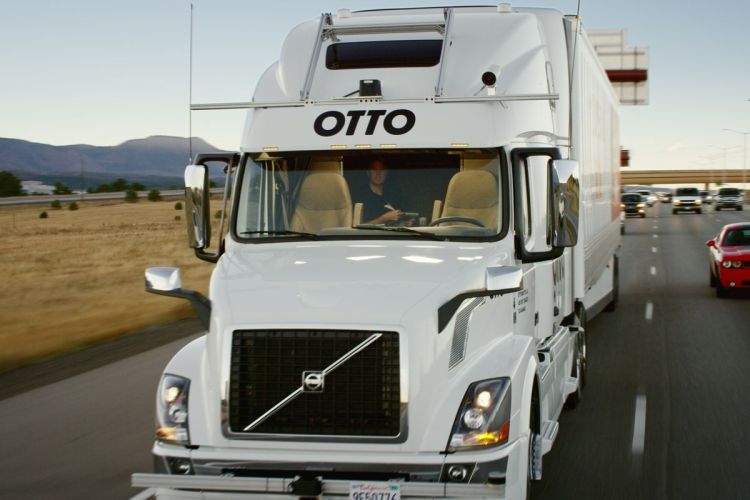Watch all the Transform 2020 sessions on-demand here.
Uber is shifting resources away from the self-driving truck unit within its Advanced Technologies Group, the company announced today in an email to reporters. For the time being, it’s ceasing development on the autonomous freight platform it acquired from autonomous tech company Otto.
“We’ve decided to stop development on our self-driving truck program and move forward exclusively with cars,” Eric Meyhofer, head of Uber Advanced Technologies Group, said in a statement. “We recently took the important step of returning to public roads in Pittsburgh, and as we look to continue that momentum, we believe having our entire team’s energy and expertise focused on this effort is the best path forward.”
The shutdown won’t affect Uber Freight — the company’s business unit that helps truck drivers connect with shipping companies — or Uber’s in-house development of lidar technology. Rather, engineers and software developers who have been working on self-driving trucks will be reassigned to its autonomous car division.
Uber said that it’ll offer employees who can’t find a comparable role a relocation or separation package. (The company’s self-driving truck unit is based in San Francisco, while the bulk of its autonomous car team is in Pittsburgh.)
June 5th: The AI Audit in NYC
Join us next week in NYC to engage with top executive leaders, delving into strategies for auditing AI models to ensure fairness, optimal performance, and ethical compliance across diverse organizations. Secure your attendance for this exclusive invite-only event.
“Rather than having two groups working side by side, focused on different vehicle platforms, I want us instead collaborating as one team,” Meyhofer wrote in an internal email obtained by TechCrunch. “I know we’re all super proud of what the Trucks team has accomplished, and we continue to see the incredible promise of self-driving technology applied to moving freight across the country. But we believe delivering on self-driving for passenger applications first, and then bringing it to freight applications down the line, is the best path forward. For now, we need the focus of one team, with one clear objective.”
Despite the strong words, Uber isn’t foreclosing on the possibility that it’ll return to self-driving trucks in the future; the Advanced Technologies Group will maintain its relationship with truck manufacturers, the company said.
Uber acquired Otto, a startup founded by former Google engineers Anthony Levandowski and Lior Ron, two years ago, in 2016 for $680 million. Levandowski became the head of Uber’s self-driving car division, but the marriage didn’t end well: In 2017, Google driverless car spinoff Waymo filed a lawsuit against Uber, alleging that Levandowski used stolen lidar technology to build Otto’s (and later Uber’s) self-driving platform.
Uber fired Levandowski before the case reached trial in February 2018, and Uber eventually settled, agreeing to pay a percentage of Uber’s 2015 billion valuation — about $244.8 million in equity.
Last week, Uber said it would begin testing its autonomous vehicle prototypes in Pittsburgh, nearly four months after one of its cars struck and killed a pedestrian in Tempe, Arizona. They’ll be driven manually by two employees, Meyhofer wrote in a Medium post announcing the redeployment, and have an off-the-shelf, aftermarket monitoring system designed to prevent distracted driving.
“Self-driving technology has the potential to change how we move, reinvent how we design cities, and save lives,” Meyhofer wrote. “We recognize our responsibility to contribute to this future, and the essential role that safety plays as we move forward.”


